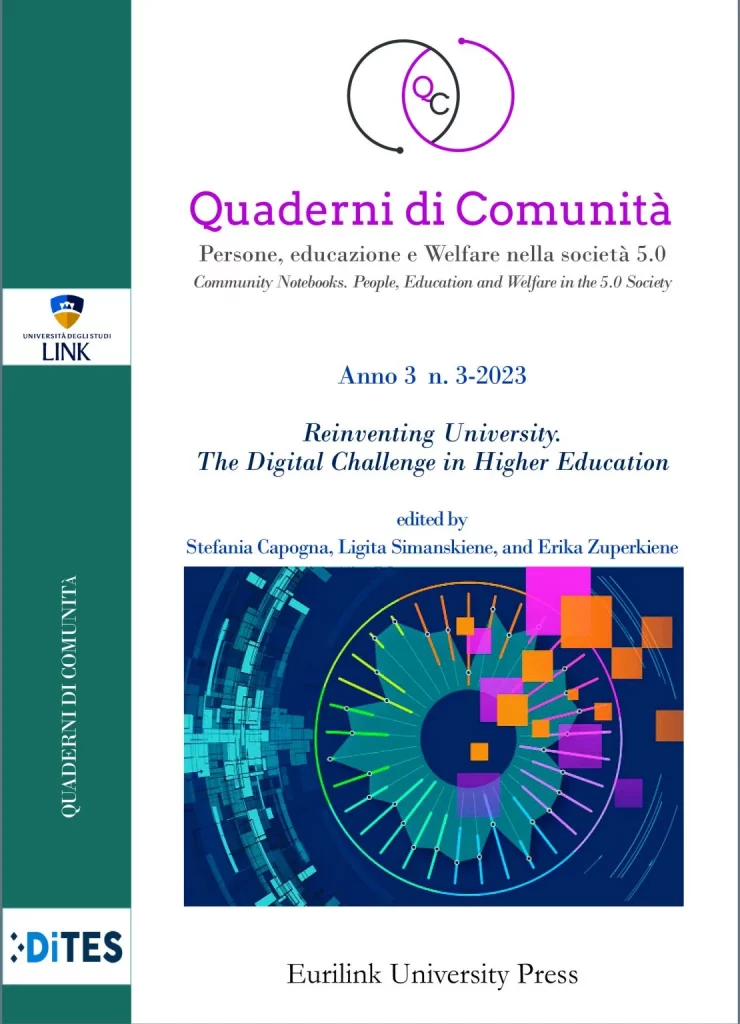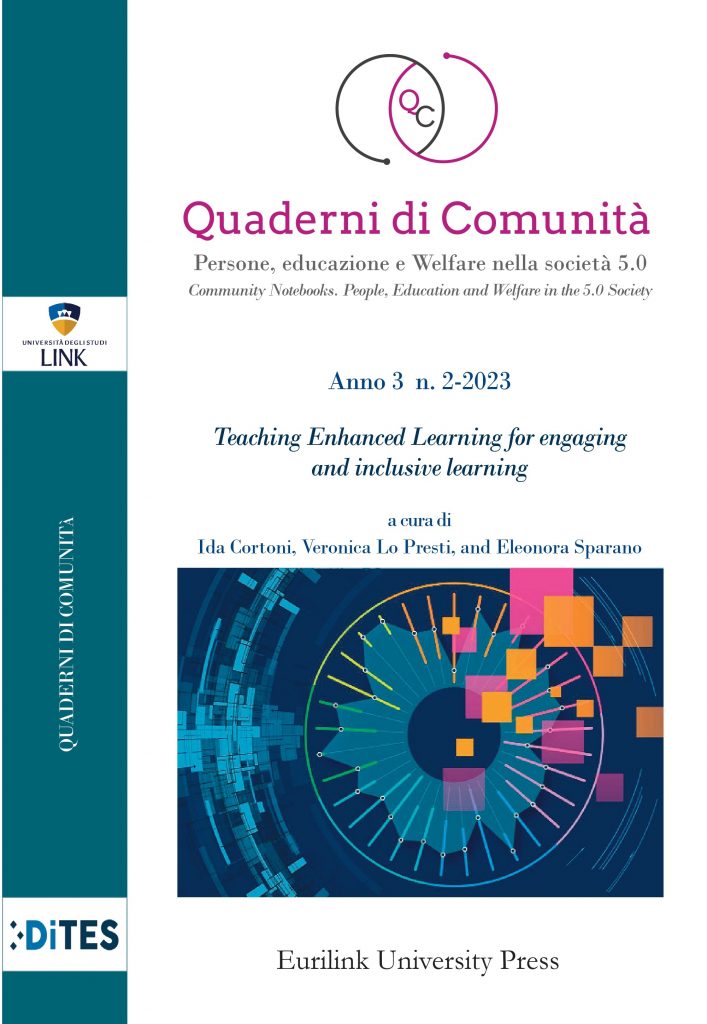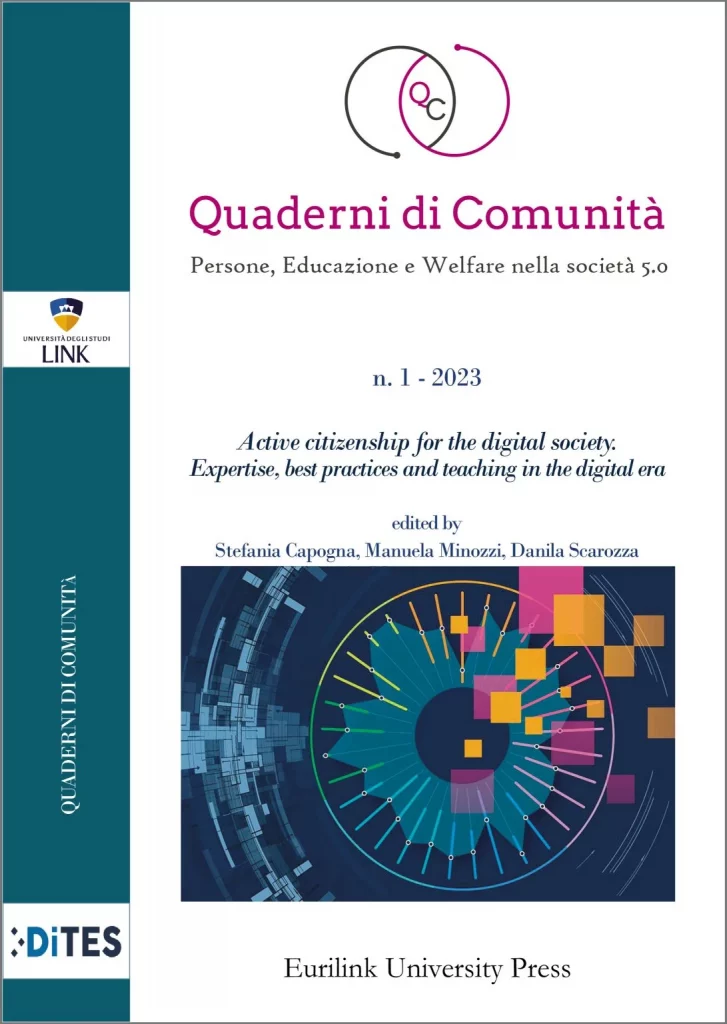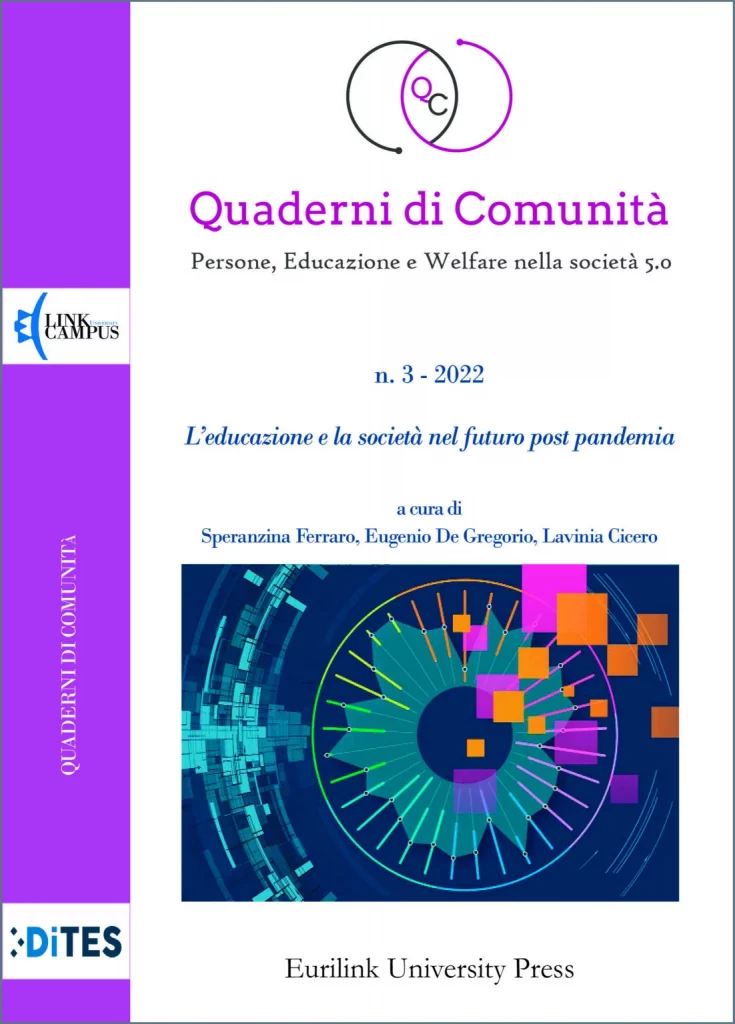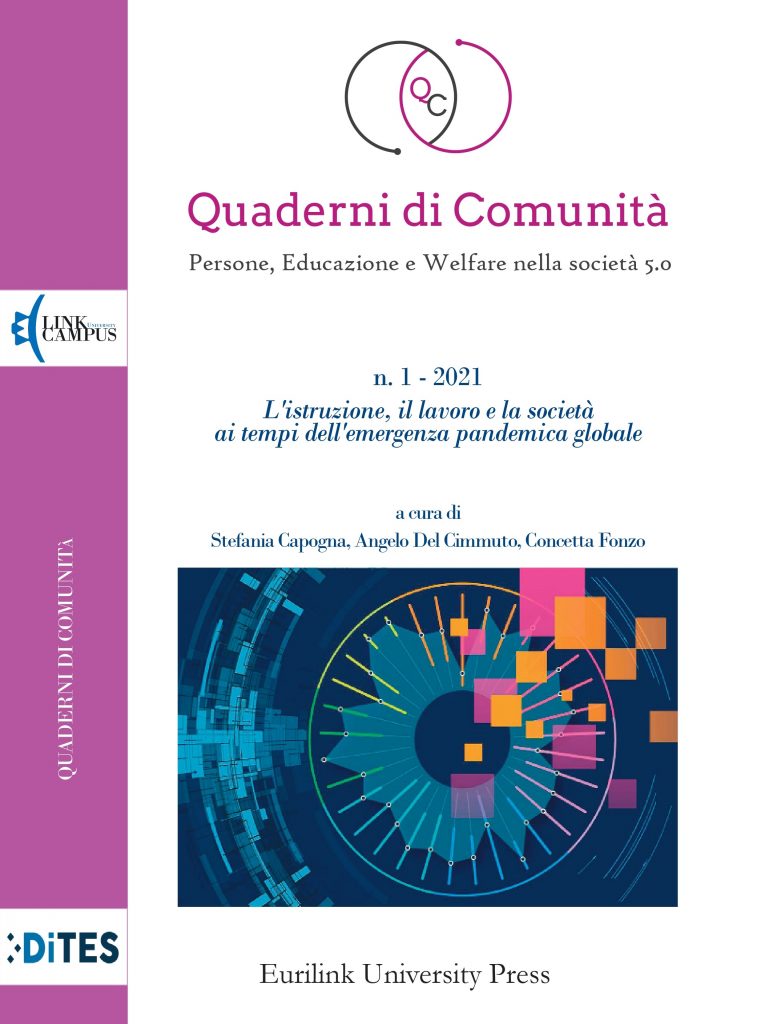Info
To receive the quarterly magazine Quaderni di Comunità free of charge. People, Education and Welfare in society 5.0 in PDF format you need to register by filling out the form
Subscription
The subscription always takes effect from the next issue.
The numbers in the archive can be purchased at: ufficiostampa@eurilink.it
Annual subscription cost (3 issues):
paper edition €55.00
electronic edition €25.00

